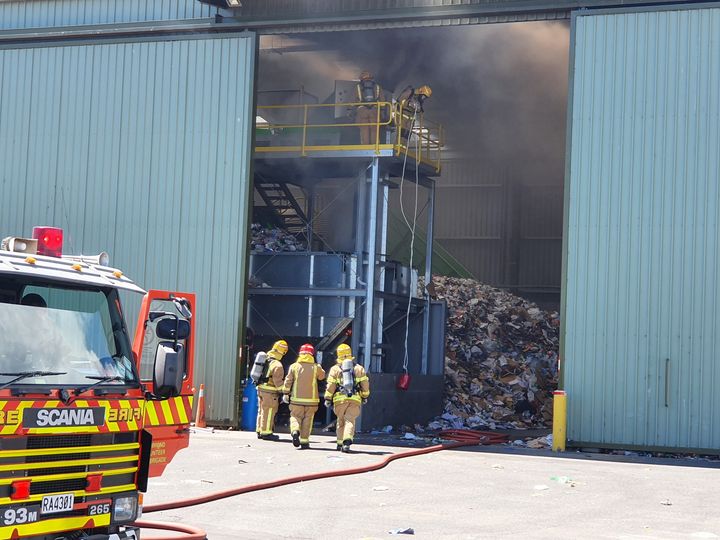Battery bins to prevent landfill fires


Battery fires in the past have resulted in tonnes of recycling being sent to the landfill while repairs were undertaken. Photo: Smart Environmental.
New bins are being developed locally in the hopes they will make battery recycling easier for residents but also safer by trying to keep the fire risks out of the landfill.
The Nelson Tasman Regional Landfill Business Unit (NTRLBU), a joint committee of Nelson City and Tasman District Councils responsible for the region’s landfills, is constructing three custom-made battery bins.
“We want to make it easier for people to dispose of batteries in a responsible way and are looking at ways that battery recycling can be made easier and more convenient for the public,” says Nathan Clarke, Nelson council’s general manager regional services.
It is hoped these bins could then be placed at key locations around the region to be collection points for people recycling lithium-ion batteries.

Lithium-ion batteries, found in personal electronic devices like smartphones, contain hazardous materials and can cause fires in rubbish and recycling trucks and landfills.
In the past year, there have been seven battery-related fires at the York Valley Landfill, down on more than 20 in the previous year – though none of the fires have been significant.
A battery fire at the Richmond Materials Recovery Facility in March 2022 also saw more than 10 tonnes of recycling get sent to the landfill while repairs were undertaken.
Several measures have been undertaken to minimise the risk of battery fires at the landfill in recent years, including implementing a fire management plan, installing a thermal imaging camera, and buying water tanks and a water cart complete with fire cannon to combat future fires.
More than 3,300kg of e-waste, including batteries, has been diverted from the landfill over the last 12 months through council-led e-waste recycling initiatives.
Given the risk posed by the batteries, the bins will need to be extensively tested after the prototypes are built.
The bins are being custom-built by the NTRLBU after a search for bins both nationally and internationally failed to find a product that believed to be safe for use in the community.
“We need to be sure that it won’t burn someone or damage surrounding property in the event that it does catch fire,” Nathan says.
It will also be important that the bin itself isn’t destroyed in a potential fire.
The bins are expected to be tested in November and will be subjected to a range of conditions, including battery fires and vandalism which will include having accelerants added to the bins.
“If testing goes well, we will advertise the bins to other councils and facilities for use for battery collection,” Nathan adds.
“This would hopefully be complete by early 2024.”

